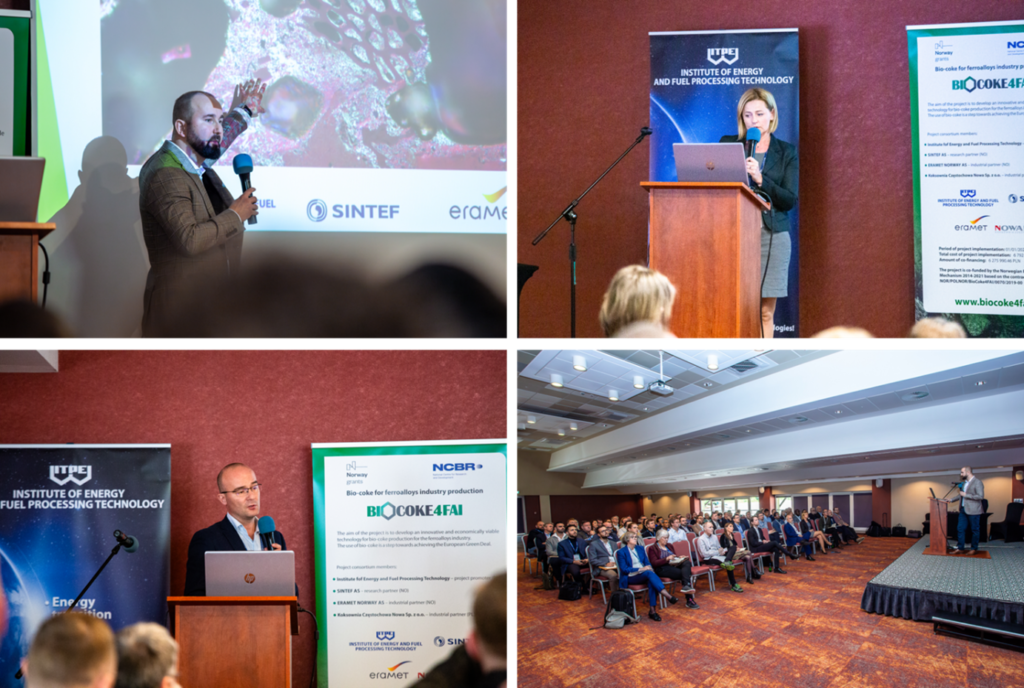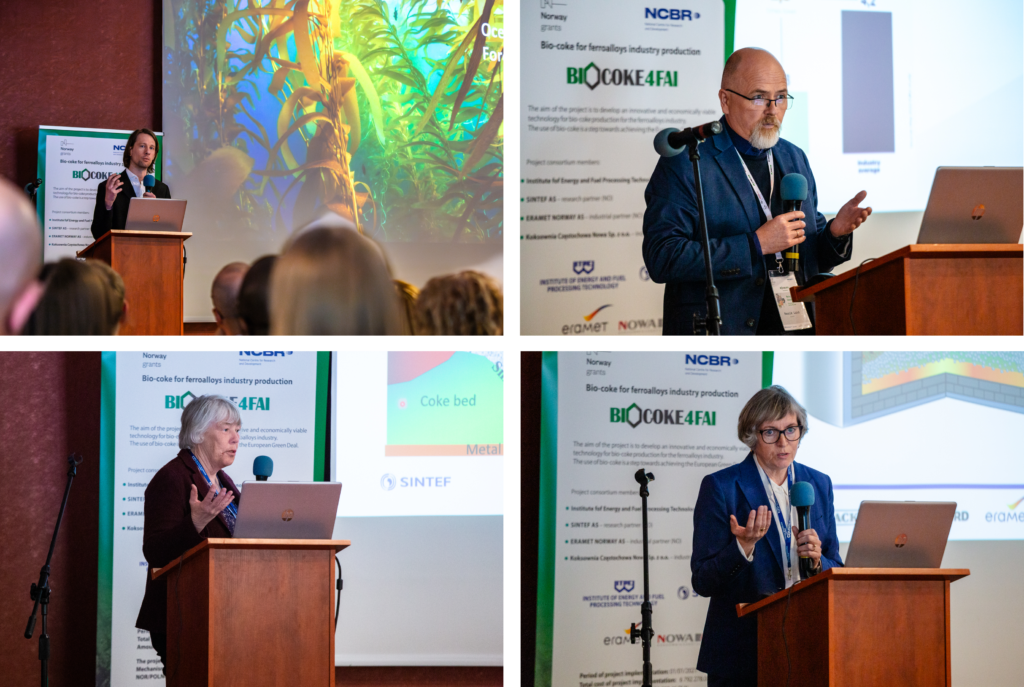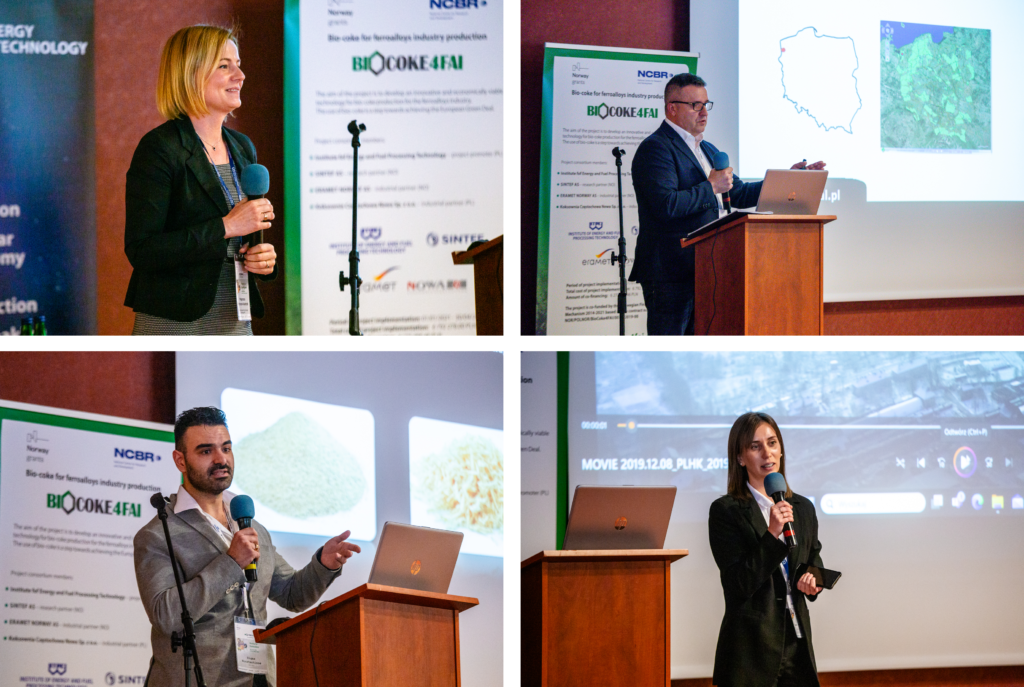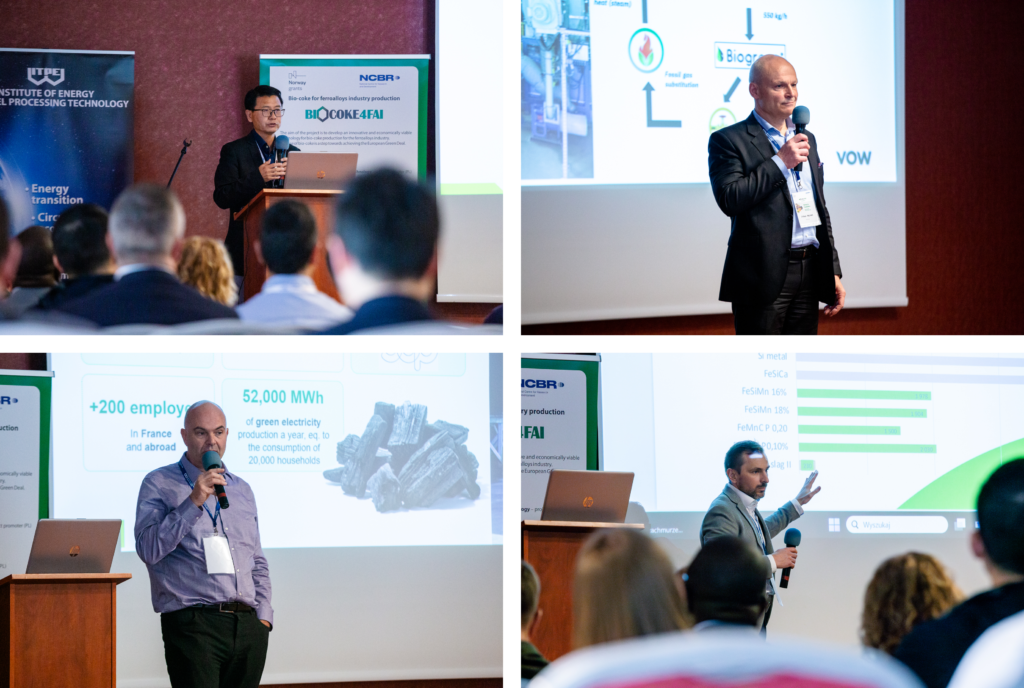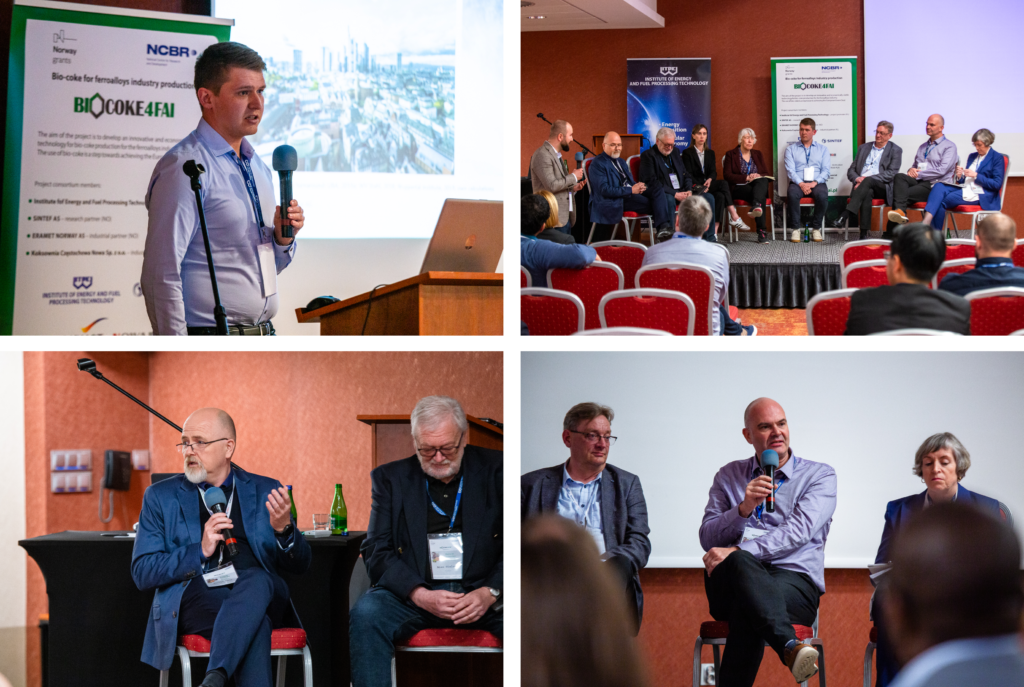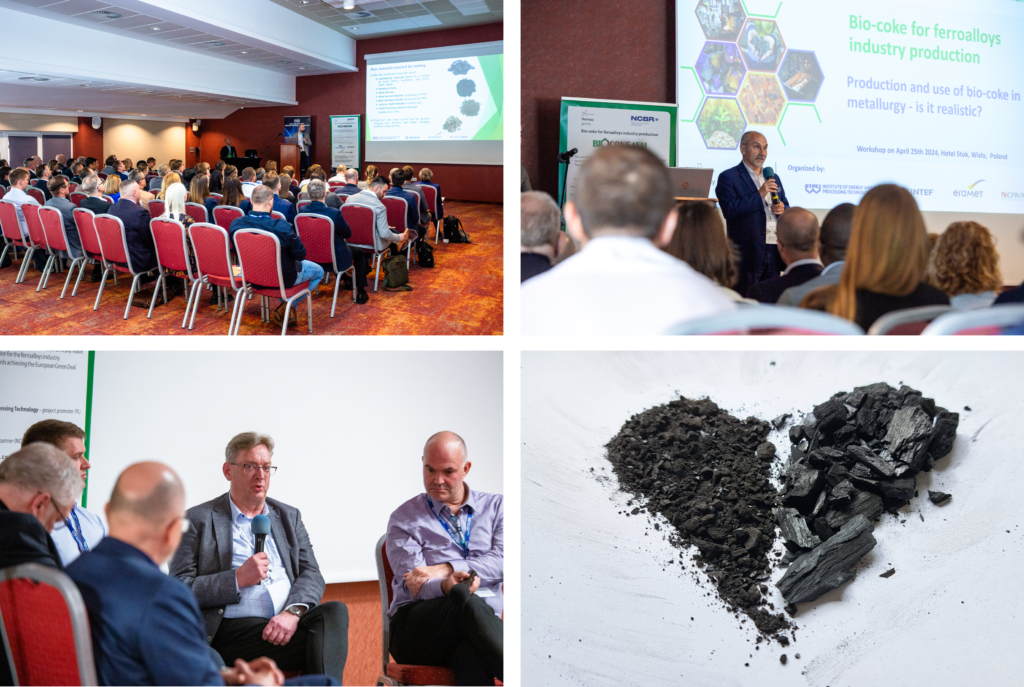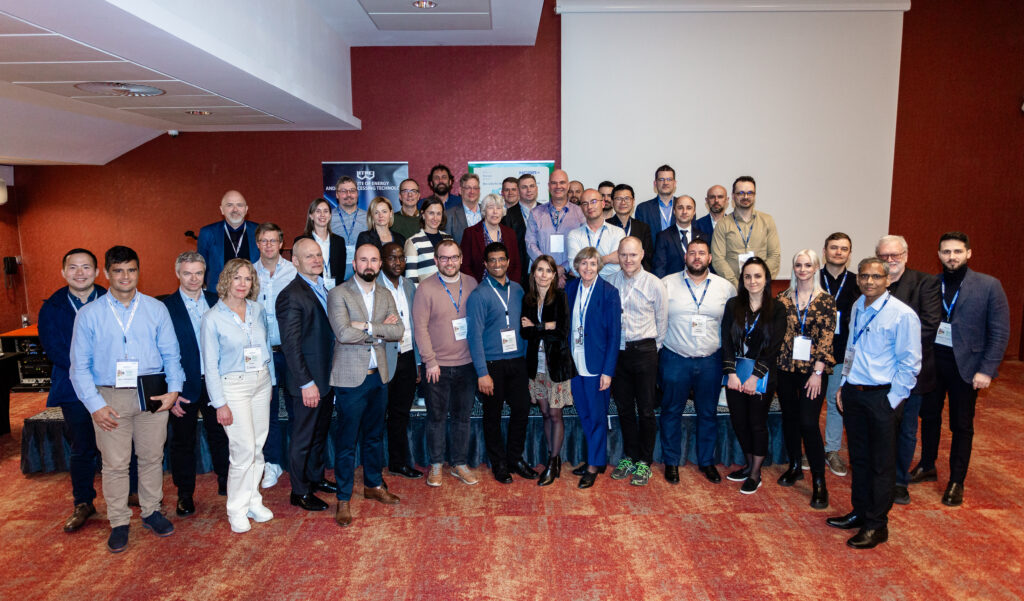On April 25, at the Stok Hotel in Wisła, there were workshop organized as part of the BioCoke4FAI project – Bio-coke for ferroalloys industry production: Production and use of bio-coke in metallurgy – is it realistic?
The project was implemented by a Polish-Norwegian consortium under the Norwegian Financial Mechanism 2014-2021 (Norway Grants). The consortium includes: the Institute of Energy and Fuel Processing Technology from Zabrze (coordinator), SINTEF from Trondheim (research partner), ferroalloy producer Eramet Norway AS and coke producer Koksownia Częstochowa Nowa sp. z o.o.
The seminar enjoyed great interest and gathered nearly 80 participants from 13 countries, representatives of industries related to the production of charcoal, biochar/biocarbon, technology developers, producers of coke and ferroalloys, trading companies, as well as representatives of the R&D sector.
The topics discussed at the seminar concerned the possibilities of industrial production and use of bio-coke as a replacement for classic metallurgical coke. The use of bio-coke – a hybrid reductant – produced on the basis of a mixture of coking coals, which are a critical raw materials, and biogenic raw materials, including biocarbon, which are considered zero-emission, would significantly reduce CO2 emissions from processes using classic raw materials of fossil origin. 15 extremely interesting papers were presented during the workshop. The participants learned about the technological aspects of bio-coke production, the role of carbon reductants in metallurgical processes and related technological nuances, about available and developed technologies for biochar/biocarbon production, their quality parameters, as well as issues related to environmental and legal conditions (including EU directives RED II and RED III) related to the broadly understood issue of renewable raw materials.
The culmination of the workshop was an open discussion panel in which experts discussed topics related to the current situation regarding the development of the market of sustainable renewable raw materials, potential possibilities of its stimulation, and the availability of a raw material base for the production of biocarbon, including alternative sources to forest biomass. The workshop was an excellent place to discuss issues important from the point of view of the development of a sustainable, environmentally friendly economy, to exchange views and insights, as well as to establish new business relationships that we hope will pay off in the future.
We would like to thank all participants for coming in such large numbers and actively participating in the workshop!
